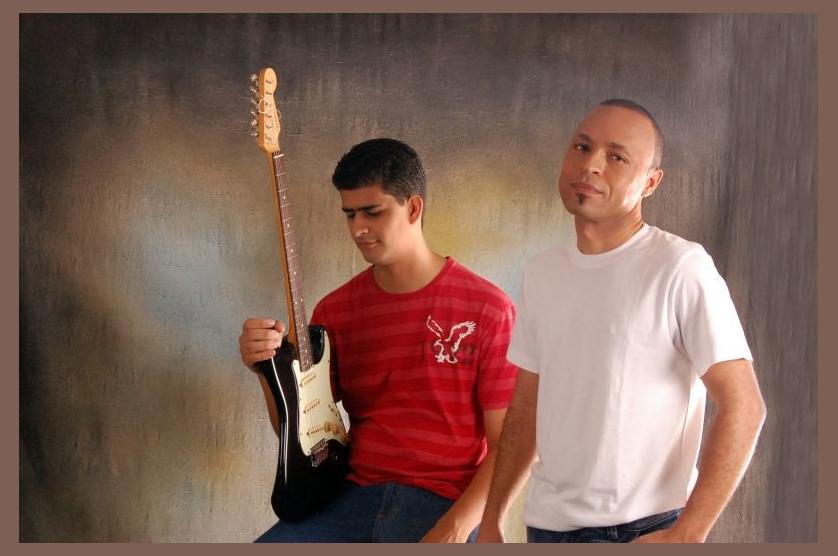 ACME - Atos Com Movimento Expresso
ACME - Atos Com Movimento Expresso
ACME: A Musical Journey of Expression and Controversy
In the vibrant tapestry of Brazilian music, ACME - Atos Com Movimento Expresso stands out as a band that has pushed the boundaries of expression while navigating the complexities of controversy. Their anthem, "A Jóia," has become a cultural phenomenon, captivating audiences with its raw emotion and evocative lyrics.
Origins and Influences:
ACME was formed in the bustling city of Salvador, Bahia, in the early 2000s. The band's founders, Fabrício Rios (vocals), Anderson Melo (guitar), Waldir Santana (bass), and Adriano Oliveira (drums), were inspired by a diverse array of musical influences, including rock, reggae, and traditional Brazilian rhythms.
Musical Journey:
ACME's early years were marked by relentless performances in local clubs and festivals. Their raw energy and unconventional sound quickly gained a loyal following. In 2005, they released their debut album, "Arrastão," which showcased their eclectic style and socially conscious lyrics.
The Controversy Surrounding "A Jóia":
In 2009, ACME released "A Jóia," a song that ignited both admiration and controversy. The lyrics, which explore themes of poverty and social inequality, resonated deeply with Brazilian listeners. However, the song's provocative music video, which featured explicit depictions of police brutality, sparked outrage and censorship attempts.
Challenges and Resilience:
Despite the backlash, ACME remained defiant. They continued to perform "A Jóia" live, becoming a symbol of artistic freedom and resistance. The controversy surrounding the song ultimately strengthened their bond with their fans and cemented their status as a voice for the marginalized.
Discography and Collaborations:
Since their debut, ACME has released five studio albums, including "Arrastão," "Quebrada da Alegria," "Alma Boa," "A Jóia," and "Quintessence." They have also collaborated with renowned artists such as Gilberto Gil, Caetano Veloso, and Chico Buarque.
Members and Musical Evolution:
ACME's lineup has remained largely intact throughout their career. Fabrício Rios, the charismatic frontman, drives the band's performances with his intense vocals and magnetic stage presence. Anderson Melo's guitar playing provides a blend of technical prowess and emotive solos. Waldir Santana's bass lines anchor the rhythm section with a deep, pulsating groove. Adriano Oliveira's drumming is a relentless force that propels the band forward.
Legacy and Impact:
Over two decades after their formation, ACME continues to be a vital force in Brazilian music. Their unwavering commitment to artistic expression, social commentary, and cultural identity has earned them a place among the most influential bands of their generation. Their music has inspired countless artists and moved millions of listeners, leaving an enduring legacy on the Brazilian cultural landscape.
In the vibrant tapestry of Brazilian music, ACME - Atos Com Movimento Expresso stands out as a band that has pushed the boundaries of expression while navigating the complexities of controversy. Their anthem, "A Jóia," has become a cultural phenomenon, captivating audiences with its raw emotion and evocative lyrics.
Origins and Influences:
ACME was formed in the bustling city of Salvador, Bahia, in the early 2000s. The band's founders, Fabrício Rios (vocals), Anderson Melo (guitar), Waldir Santana (bass), and Adriano Oliveira (drums), were inspired by a diverse array of musical influences, including rock, reggae, and traditional Brazilian rhythms.
Musical Journey:
ACME's early years were marked by relentless performances in local clubs and festivals. Their raw energy and unconventional sound quickly gained a loyal following. In 2005, they released their debut album, "Arrastão," which showcased their eclectic style and socially conscious lyrics.
The Controversy Surrounding "A Jóia":
In 2009, ACME released "A Jóia," a song that ignited both admiration and controversy. The lyrics, which explore themes of poverty and social inequality, resonated deeply with Brazilian listeners. However, the song's provocative music video, which featured explicit depictions of police brutality, sparked outrage and censorship attempts.
Challenges and Resilience:
Despite the backlash, ACME remained defiant. They continued to perform "A Jóia" live, becoming a symbol of artistic freedom and resistance. The controversy surrounding the song ultimately strengthened their bond with their fans and cemented their status as a voice for the marginalized.
Discography and Collaborations:
Since their debut, ACME has released five studio albums, including "Arrastão," "Quebrada da Alegria," "Alma Boa," "A Jóia," and "Quintessence." They have also collaborated with renowned artists such as Gilberto Gil, Caetano Veloso, and Chico Buarque.
Members and Musical Evolution:
ACME's lineup has remained largely intact throughout their career. Fabrício Rios, the charismatic frontman, drives the band's performances with his intense vocals and magnetic stage presence. Anderson Melo's guitar playing provides a blend of technical prowess and emotive solos. Waldir Santana's bass lines anchor the rhythm section with a deep, pulsating groove. Adriano Oliveira's drumming is a relentless force that propels the band forward.
Legacy and Impact:
Over two decades after their formation, ACME continues to be a vital force in Brazilian music. Their unwavering commitment to artistic expression, social commentary, and cultural identity has earned them a place among the most influential bands of their generation. Their music has inspired countless artists and moved millions of listeners, leaving an enduring legacy on the Brazilian cultural landscape.